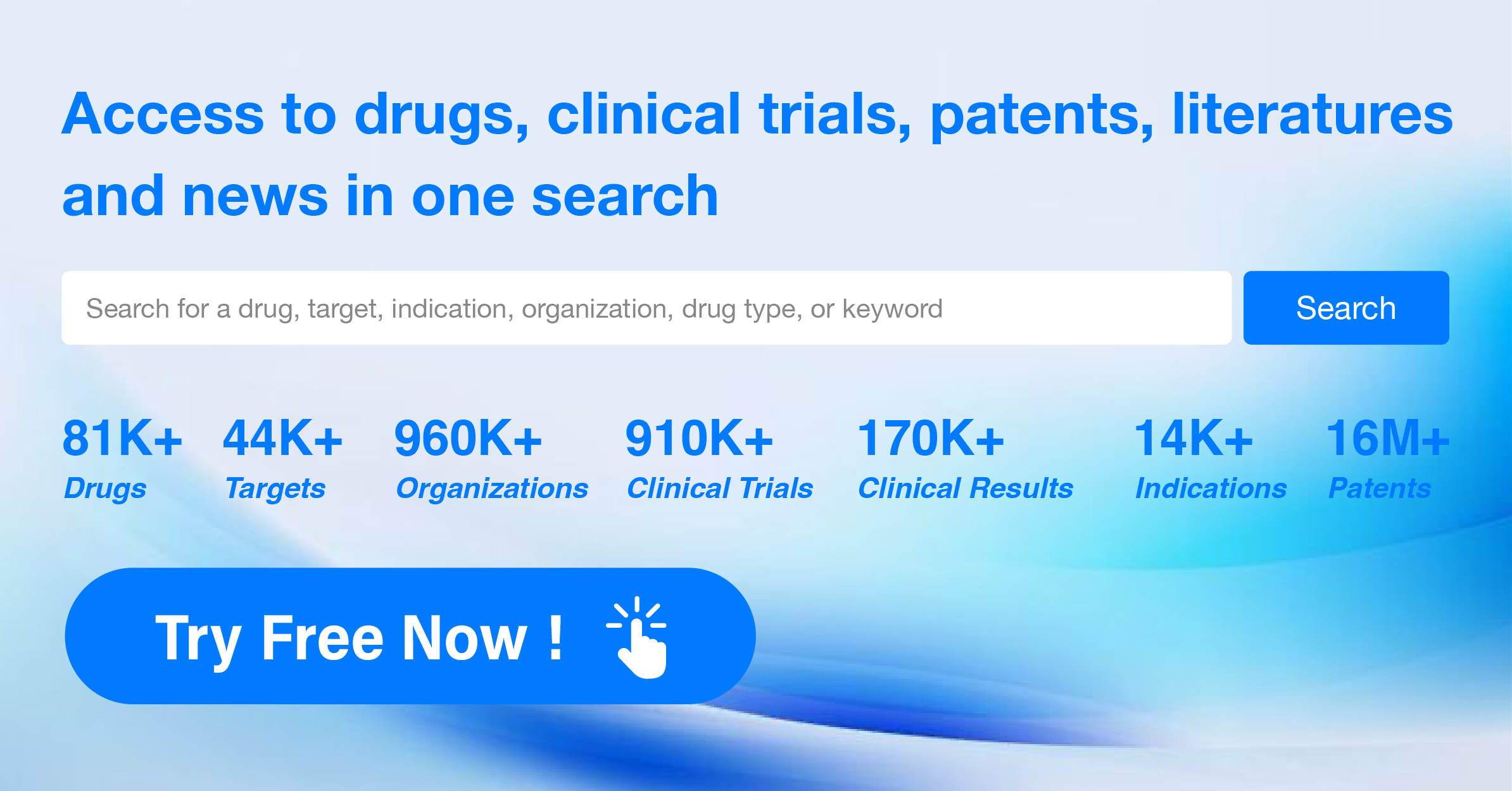Pharma Frontiers: Daily Digest of Global Pharmaceutical News - April 17
1.Eli Lilly's oral JAK inhibitor, Baricitinib, receives new indication approval in China for market release
On April 16th, according to the NMPA official website, the new indication for Eli Lilly's Baricitinib tablets has been approved for market release in China (approval number: JXHS2300005). Baricitinib, an oral JAK inhibitor, was co-developed by Eli Lilly and Incyte. It was approved in the United States in 2018 for the treatment of rheumatoid arthritis and subsequently expanded to include indications for coronavirus infections and alopecia areata. In June 2022, it was approved for the treatment of adults with severe alopecia areata, making it the first oral therapy for alopecia areata approved by the FDA, which also supports Baricitinib's continued growth in the US market. In China, Baricitinib was approved in July 2019 for the treatment of moderate to severe active rheumatoid arthritis in adults and received approval for a new indication for alopecia areata in March of last year.
Previously, Eli Lilly announced results from the Phase III JUVE-BASIS study of Baricitinib for the treatment of patients with juvenile idiopathic arthritis (JIA), which showed good efficacy and safety in patients with refractory JIA. The study included 220 patients aged 2-18 years with extended oligoarticular or polyarticular JIA, enthesitis-related arthritis or psoriatic arthritis who had an inadequate response to one or more conventional synthetic or biologic disease-modifying antirheumatic drugs (bDMARDs). The data results indicated that the JUVE-BASIS study met its primary endpoint, with a significantly shorter time to flare and a significantly lower proportion of flares in the Baricitinib-treated patients compared to placebo during the double-blind treatment period. Furthermore, in terms of safety, Baricitinib was well tolerated. During the double-blind treatment period, the incidence rate of treatment-emergent adverse events (TEAEs) in the Baricitinib group was 66%, compared to 47% in the placebo group; the incidence rate of serious adverse events (SAEs) was 5% for Baricitinib versus 4% for placebo.
2.Organovo Announces Positive Trial Results for Potential "Best-in-Class" MASH Therapy
On April 16th, Organovo Holdings announced the positive Phase II trial results for its investigational drug FXR314, which is being tested for the treatment of patients with Metabolic Associated Steatohepatitis (MASH). The study indicated a significant reduction in liver fat content compared to baseline in patients treated with FXR314, as opposed to the placebo group. The trial results made public stem from a 16-week randomized, placebo-controlled, multi-center Phase II study. Analysis revealed that, relative to baseline, liver fat content in the FXR314 treated group was statistically significantly reduced, with a least squares mean percentage decrease in liver fat of 22.8% (p=0.0010) for the 3 mg FXR314 group, and a decrease of 17.5% (p=0.0267) for the 6 mg FXR314 group, compared to a reduction of 6.1% in the placebo group. Moreover, the proportion of subjects in the 3 mg and 6 mg FXR314 groups who saw more than a 30% reduction in liver fat according to Magnetic Resonance Imaging-Proton Density Fat Fraction (MRI-PDFF) were 29.2% (p=0.0023) and 32.2% (p=0.0020), respectively, in contrast to 9.5% in the placebo group. Researchers observed improvements in hepatocellular injury and liver function based on serological measurements, with no evidence of worsening liver fibrosis. FXR314 demonstrated good safety and tolerability profiles, with the majority of adverse events being mild to moderate in severity, and occurrence rates being comparable across the 3 mg, 6 mg, and placebo groups. Drug-related treatment discontinuations were rare and proportionally similar among the different dosage groups. FXR314 is a potential "best-in-class" non-steroidal, non-bile acid oral FXR agonist being developed to treat inflammatory bowel disease (IBD), MASH, and primary biliary cholangitis (PBC).
3.Ultragenyx Advances Antisense Oligonucleotide Therapy into Phase 3 Clinical Trials
On April 16th, Ultragenyx Pharmaceutical announced the latest results from their Phase 1/2 clinical trials for the investigational therapy GTX-102, which is used for the treatment of Angelman syndrome. Data analysis indicated that patients from the extended Cohorts A and B who received GTX-102 treatment demonstrated rapid and clinically meaningful multi-domain functional improvements on day 170. Additionally, some patients in the dose-escalation cohorts showed long-term and sustained clinical benefits on day 758, surpassing outcomes expected from natural history data. Based on these findings, the company plans to initiate pivotal Phase 3 clinical trials. The data from day 170 for the treated extended Cohorts A and B revealed rapid and clinically meaningful improvements in cognitive abilities and receptive communication as assessed by Bayley-4, compared with natural history data. Earlier treated patients in the dose-escalation cohorts, at day 758, showed sustained and clinically significant improvement across cognitive functions, behavior, sleep, and receptive communication evaluated by both Bayley-4 and the Angelman Syndrome Assessment (ASA).
Angelman syndrome is a neurological developmental disorder caused by deletion or mutation of the UBE3A gene, with primary disease characteristics including developmental delay, intellectual disability, speech and balance impairments. In 2019, Ultragenyx and GeneTx formed a collaboration to advance research for the antisense oligonucleotide therapy GTX-102, which aims to promote the expression of paternal allele of UBE3A in neuronal cells, thereby producing the critical protein product missing in patients.
4.Significant Increase in Patient Survival Rate, Long-Term Research Results of Innovative Intestinal Microbiota Therapy Announced
On April 16, MaaT Pharma presented the latest research findings of its investigational microbiome therapy MaaT013 for the treatment of patients with Gastrointestinal Acute Graft-versus-Host Disease (GI-aGvHD), at the 50th annual meeting of the European Society for Blood and Marrow Transplantation (EBMT). The study results demonstrated that patients treated with MaaT013 had an overall survival rate (OS) of 42% at 18 months, significantly higher than the historical data published previously. The study participants (n=140) had undergone extensive prior treatments and were either steroid-resistant or dependent on steroid treatment. The following outcomes were observed in these patients: a Gastrointestinal Overall Response Rate (GI-ORR) of 52% at day 28, with 28% of patients achieving Complete Response (CR). Considering all organs, the ORR was 52% and CR was 24%. The OS at 6 months was 54%, at 12 months 47%, and at 18 months 42%. Patients who responded to MaaT013 showed significantly higher OS compared to non-responders (68% vs 24% at 12 months, 58% vs 24% at 18 months). MaaT Pharma is currently conducting a pivotal Phase 3 clinical trial evaluating MaaT013 in patients with GI-aGvHD who are resistant to corticosteroids and ruxolitinib.
MaaT Pharma is dedicated to the development of Microbiome Ecosystem Therapies (MET). MaaT013 is an ecosystem therapy derived from a donor microbiome developed utilizing the core technology of the MET platform. This therapy incorporates samples from multiple donors and contains bacterial species known to produce anti-inflammatory short-chain fatty acids. MaaT013 has been granted Orphan Drug designation by the U.S. Food and Drug Administration (FDA) and the European Medicines Agency (EMA).
5.Novartis Files Marketing Application for Complement Factor B Inhibitor Iptacopan for the Treatment of IgA Nephropathy
On April 15th, Novartis announced the interim analysis results of the Phase III APPLAUSE-IgAN study for Fabhalta (iptacopan) in patients with IgA nephropathy (IgAN) at the World Congress of Nephrology (WCN). This study is a multicenter, randomized, double-blind, placebo-controlled clinical trial (n=518), aiming to evaluate the efficacy and safety of iptacopan (200mg orally, twice daily) in treating adult patients with primary IgAN. The primary endpoint of the study was the change in proteinuria levels assessed by urine protein/creatinine ratio (UPCR) at month 9 and the slope of the annualized total glomerular filtration rate (eGFR) over 24 months. The baseline eGFR of the main study population was ≥30 mL/min/1.73m^2, with a baseline UPCR of ≥1g/g. Additionally, a small subset of patients with severe renal impairment (baseline eGFR: 20-30 mL/min/1.73m^2) were included in the study but were not part of the main efficacy analysis. The efficacy analysis conducted in 250 IgAN patients showed that, compared with the placebo group, the iptacopan group had a 38.3% reduction in proteinuria levels (p<0.0001). Safety analysis in 443 IgAN patients indicated that iptacopan was well tolerated and had a good safety profile, consistent with previous studies. Based on the positive results of the interim analysis, Novartis has submitted a Supplemental New Drug Application (sNDA) to the FDA for accelerated approval of iptacopan in treating IgAN patients, which has been granted Priority Review by the FDA. If approved, this medication will become the first dedicated therapy targeting the alternative complement pathway for IgAN.
Iptacopan is a complement factor B (CFB) inhibitor targeting the alternative complement pathway developed by Novartis, which was approved by the FDA in December 2023 for the treatment of adult patients with paroxysmal nocturnal hemoglobinuria (PNH).
6.Long-acting LIB PCSK9 inhibitor reduces "bad cholesterol" by nearly 60%
Recently, at the 2024 American College of Cardiology (ACC) Annual Scientific Session, researchers from LIB Therapeutics announced the results of the LIBerate-HR trial, showing that the company's long-acting PCSK9 inhibitor, lerodalcibep, significantly reduced LDL-C levels by 56.3% in patients with cardiovascular disease or those at high risk for cardiovascular disease, with a higher proportion of patients achieving their lipid-lowering goals. Notably, Haisen Bio-Pharmaceutical secured exclusive development and commercialization rights for this drug in the Greater China region in 2023 through a collaboration worth up to $325 million.
Elevated levels of low-density lipoprotein cholesterol (LDL-C), commonly known as "bad cholesterol," are among the primary risk factors for coronary artery disease and the formation of atherosclerotic plaques. Lerodalcibep, a fusion protein, is a third-generation long-acting PCSK9 inhibitor developed by LIB Therapeutics. Publicly available data indicates that compared to traditional PCSK9 inhibitor monoclonal antibodies, lerodalcibep requires only one injection per month and has a smaller injection volume, which can help reduce adverse reactions and immunogenicity at the site of injection in patients. Additionally, the drug possesses more stable characteristics at room temperature. Therefore, lerodalcibep promises to help more patients with hyperlipidemia achieve control of their blood lipid levels.
The results released are from a randomized, double-blind, placebo-controlled Phase 3 clinical trial with the primary treatment endpoint being the change in LDL-C levels from baseline at week 52 of treatment, as well as the average LDL-C levels at weeks 50 and 52. The results showed: the lerodalcibep group experienced a reduction in LDL-C levels by 56.33%, while the placebo group saw only a 0.14% decrease (P<0.001); the average LDL-C level in the lerodalcibep group decreased by 63.25% for weeks 50 and 52, while the placebo group decreased by only 0.56% (P<0.001); LDL-C levels were reduced absolutely by 60.6 mg/dL and 74.5 mg/dL, respectively.
7.Regeneron Ventures Launches Venture Capital Fund
On April 15th, Regeneron Ventures announced its launch, focusing on investments in promising biopharmaceuticals, healthcare, and health technology. Regeneron Pharmaceuticals is the exclusive limited partner for this healthcare venture capital fund, committing to invest $100 million annually over the next five years. Dr. Jay S. Markowitz and Dr. Michael Aberman, former Regeneron executives, will helm Regeneron Ventures and jointly lead the fund's investment strategy. Prior to joining Regeneron Ventures, Dr. Markowitz served as a senior partner at ARCH Venture Partners. From 2017-2020, he was a Senior Vice President at Regeneron. Dr. Aberman, who spent over seven years at Regeneron, most recently held the position of Senior Vice President for Investor Relations and Strategy; before joining Regeneron, he was a biotechnology analyst at Credit Suisse and Morgan Stanley for six years. Investment decisions at Regeneron Ventures are based on three key elements: people, science, and data. The fund's objective is to assist portfolio companies in transforming great ideas into great products that can have a significant impact on patients. "Our goal is to nurture an ecosystem where the next generation of biotech companies can thrive. In the future, we will support groundbreaking advances that have the potential to push the boundaries of science and medicine," said Dr. Aberman. The establishment of Regeneron Ventures represents Regeneron's acquisition of a venture capital "wing," much like nearly all Big Pharma. According to statistics from HSBC, Sanofi, Eli Lilly, BMS, Astellas, and Novartis are among the biggest corporate investors in 2023.




